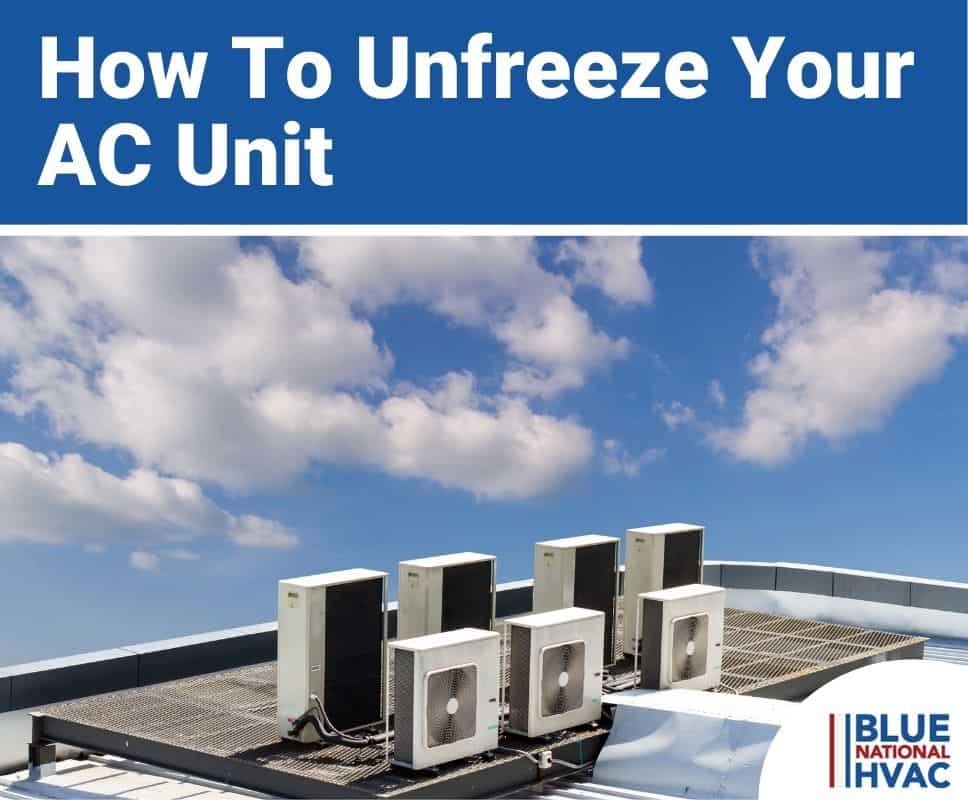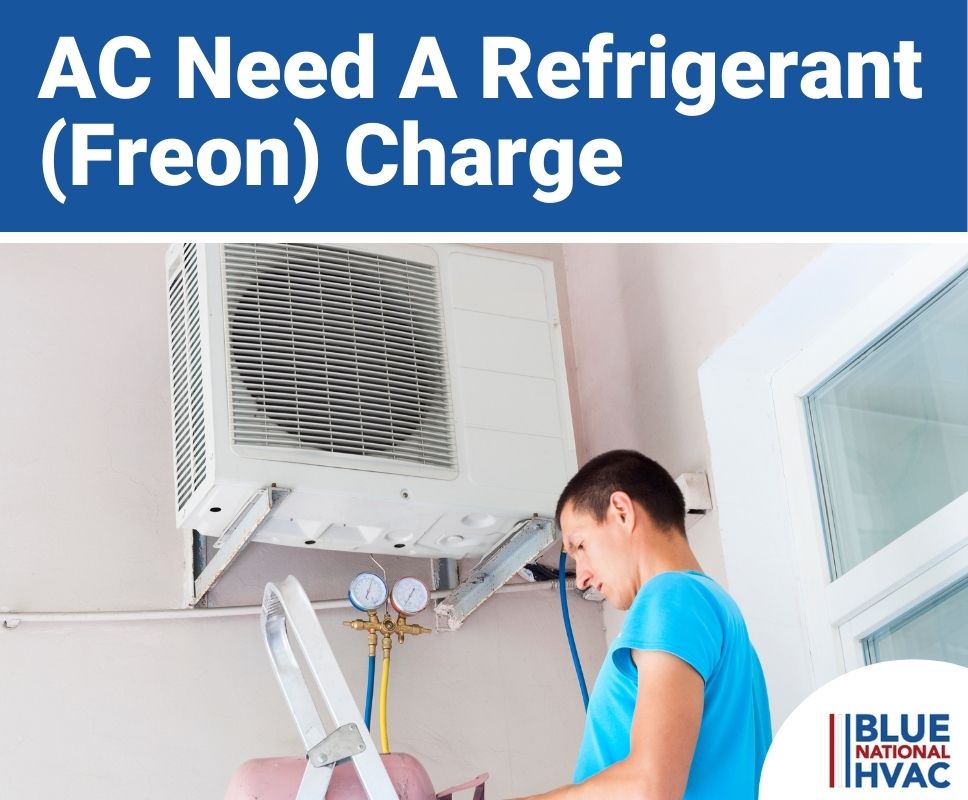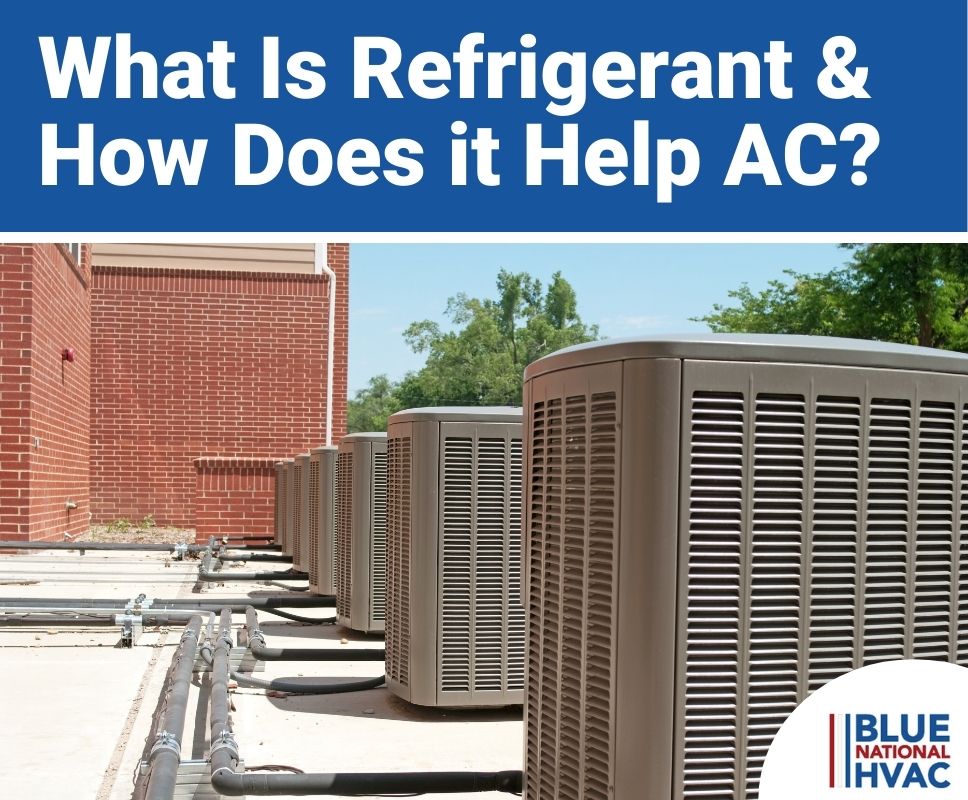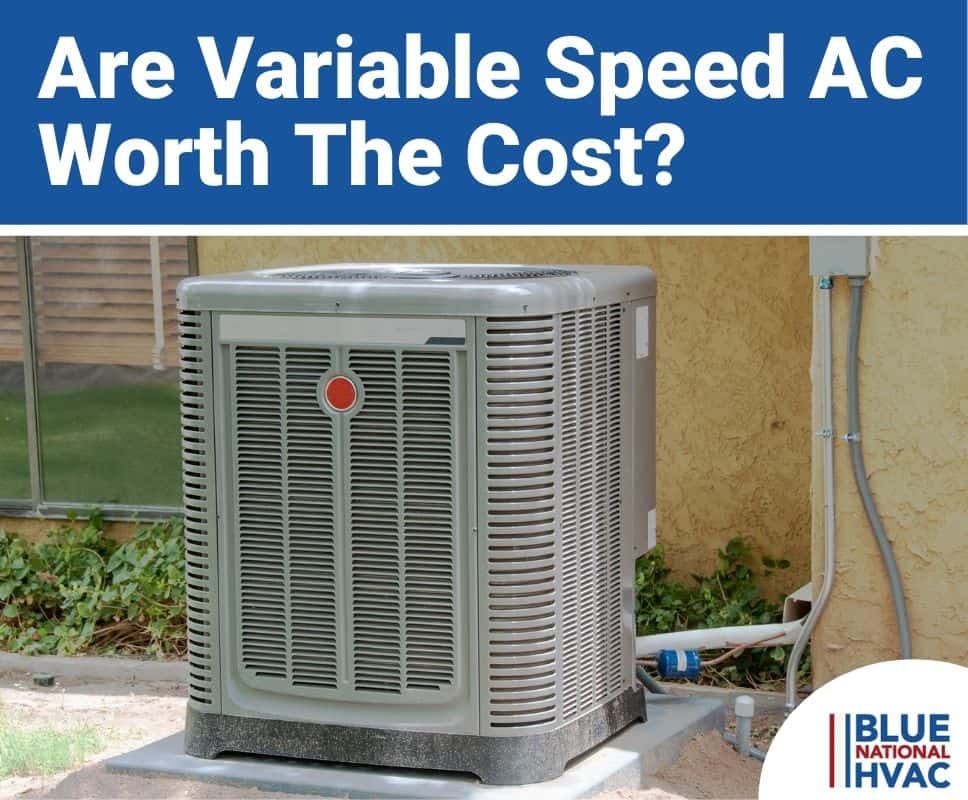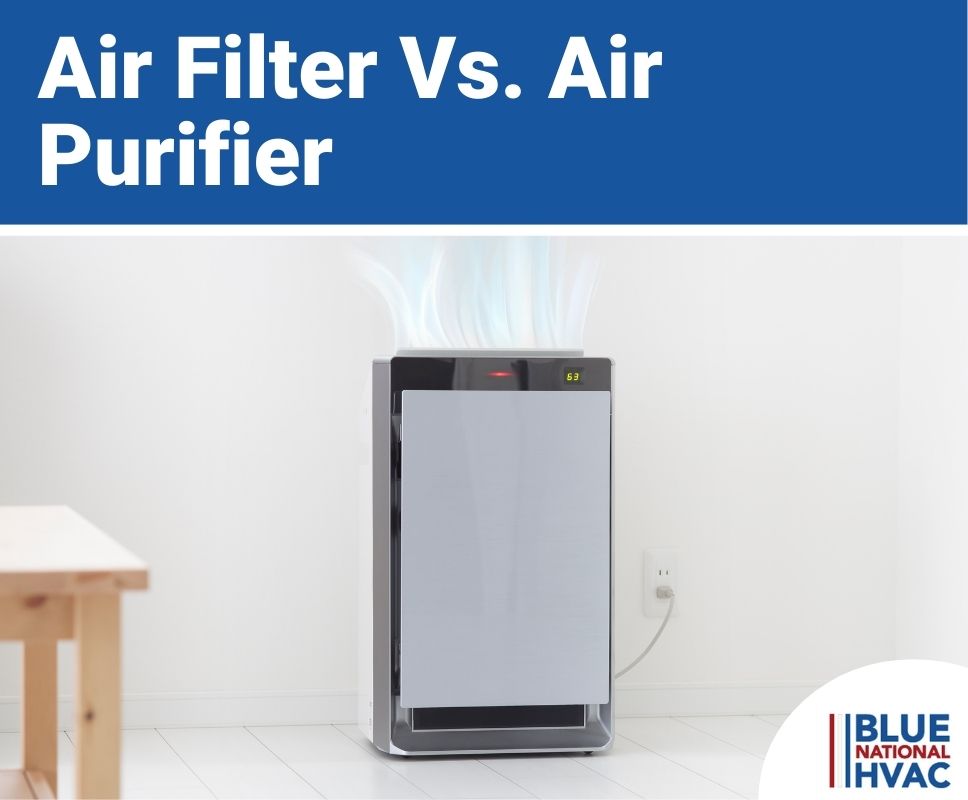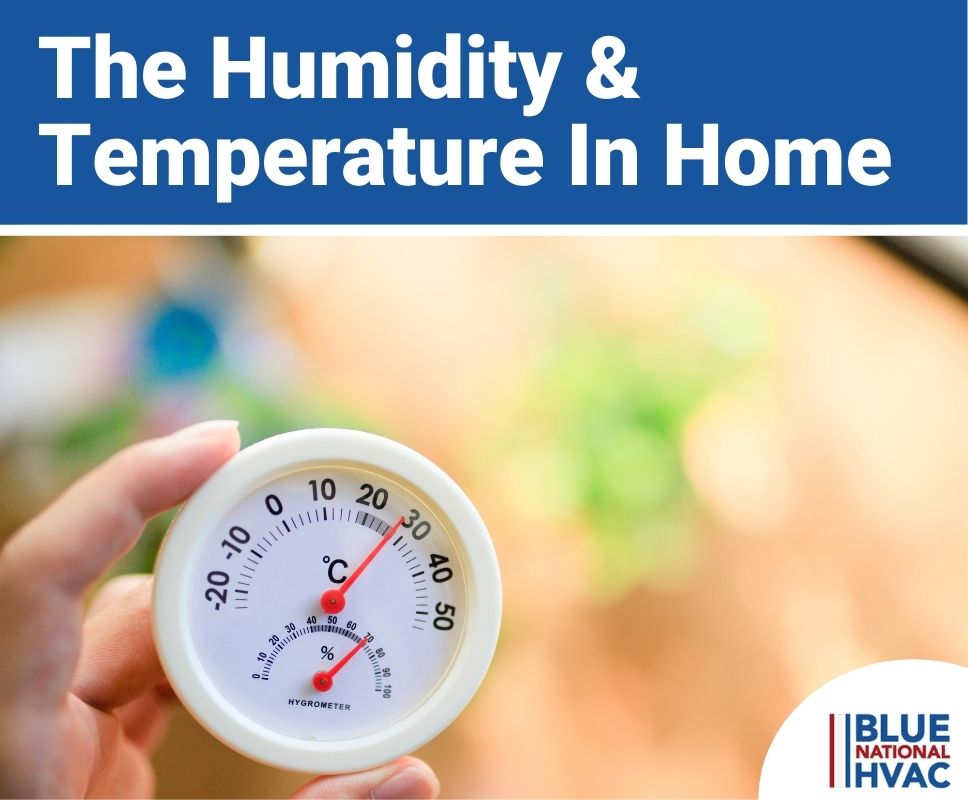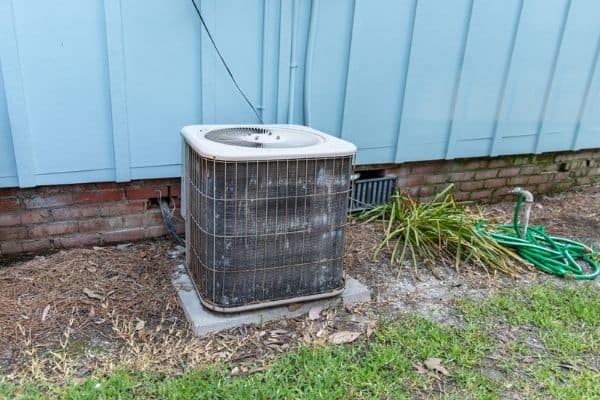Why Do AC Units Freeze Up?
Air conditioners are the best solution for cooling your home in the summer. They pump crisp, cool air into the rooms of your home through the supply vents, keeping you and your family content and comfortable. Unfortunately, sometimes things go wrong, and the air conditioner’s evaporator coils freeze over with a thick layer of ice.
A frozen air conditioner might not sound too bad; after all, it’s supposed to be super cold, right? In actuality, a frozen AC unit is detrimental to its performance as it blocks the airflow and prevents the circulation of cool air throughout your home. This means you’ll be sweating while your AC unit is freezing.
To understand why air conditioning systems freeze up sometimes, let’s review how they work first. This will provide a better understanding of exactly where things can go awry and freeze.
All air conditioners use the vapor-compression refrigeration cycle to remove heat from your home. The major components of the AC system work in tandem to complete the cycle; the components include:
- Condenser unit (outdoor unit)
- Compressor
- Fan blower
- Condenser coils
- Air handler (indoor unit)
- Evaporator coils
- Air filter
- Condensate drain system
- Fan Blower
- Thermal expansion valve (TVX)
- Refrigerant lines
These major components connect together with the refrigerant lines in a closed loop. The refrigerant flows through every component like a racecar on a circular track, experiencing various changes in temperature and pressure along the way.
As the refrigerant passes through the cycle, it removes heat from inside the home and pumps it outdoors. Unfortunately, various problems can occur along this cycle that could cause the air conditioner to freeze.
Here are the significant issues that could lead to your air conditioner freezing over.
Low Refrigerant
Refrigerant leaks are amongst the top reasons evaporator coils of an air conditioner ice over, if not the number one reason.
Icing occurs when a small hole develops on the evaporator coils. The pressurized refrigerant will then escape out of this pinhole, rapidly losing pressure and subsequently cooling due to the Joule-Thomson Effect.
When water condenses from the air onto the evaporator coils, the cold refrigerant leak will freeze it. Given enough time and condensation, a large or entire portion of the evaporator coils could freeze over and block the majority of the airflow.
Clogged Air Filter
Your HVAC filter is located in the indoor unit (air handler) of your air conditioner. When it gets clogged with dust, it can reduce or even block the airflow completely. When there is low airflow, not enough warm air will get to the evaporator coils. An excess amount of condensation will then form on the coils to the point where they are saturated.
When this happens, the water on the coils will begin to freeze and ice over the evaporator coils.
If you notice low airflow out of your supply vents, or your home isn’t getting cool, check your AC filter. If it is dirty, replace it with one of the same size. This should restore the airflow, and depending on the amount of ice on the evaporator coils, it may melt quickly or take multiple hours for function to be fully restored.
Dirty Coils
Similar to a clogged air filter, dirty evaporator coils will cause a reduction in airflow. However, dirty coils are a double-whammy because the clumps of dust, dirt, and hair collect and hold onto the condensation.
This keeps the coils moist, allowing it to turn into a block of dirty, dusty ice. The ice/dust hybrid will block even more airflow, preventing your home from cooling.
High Relative Humidity
One of the essential functions of your air conditioner is removing humidity from the air. Since warmer air naturally holds more relative humidity than cooler air, moisture condenses out of it the moment your AC unit cools it.
If the humidity levels outdoors are exceptionally high for long periods, the excessive and constant moisture on the coils can lead to them freezing. If your home is in a humid climate zone, like the southeastern United States, consider adding a whole-house dehumidifier to your HVAC system.
It will take the stress off your air conditioner and increase the comfort in your home.
Failing Fan
The blower motor of your air conditioning unit is responsible for driving the fan that moves air throughout your HVAC system. If the blower motor starts to fail, you will notice a reduction in the amount of air coming out of your supply vents, and your home will stay warm.
When the fan is failing, it won’t blow sufficient air through the evaporator coils. Condensation will build up on the coils, which could lead to freezing.
Malfunctioning Thermostat
Your thermostat is the brain of your air conditioning unit. The thermostat tells the AC unit when to run and for how long. It also measures the indoor air temperature in your home. When thermostats malfunction, they could fail in such a way that causes your evaporator coils to freeze.
Broken Duct
If your home has ductwork with many leaks or a portion of it is collapsed or blocked, it could affect the airflow to or from your air conditioner. A lack of airflow across the evaporator coils could cause condensed moisture to freeze.
How Do You Unfreeze An AC Unit?
The best way to unfreeze your AC unit is to turn it off and give it time to melt. However, various factors can cause ice buildup to occur, so it is best to check for the common causes listed in the previous sections first.
Some places might tell you to use a hairdryer to defrost the coils. However, we recommend against that. Refrigerant leaks could cause frozen coils, and by thawing them with a hairdryer, you unnecessarily exposing yourself to the refrigerant, which can be toxic.
Here’s how to unfreeze your AC unit.
Check the AC Filter and Drain Pan
Once you determine you have a frozen air conditioner, the first thing you should do is check the air filter. If the air filter is jam-packed with dirt, that is likely the cause of your frozen evaporator coils. In this case, replace the air filter.
After replacing the filter, check the condensate drain pan for any clogs, obstructions, or ice to prevent water damage. When the ice on your evaporator coils begins to melt, it will need a place to drain.
Turn the AC Off and Leave the Fan On
Once you have a new filter in place and you are sure that your condensate pan is clear, turn your AC unit off on your thermostat. Next, turn the fan setting to “on” and let it run for multiple hours.
The circulation of air should be enough to melt your frozen coils given enough time.
Wait
If your dirty air filter was the cause of your frozen coils, all you have to do to thaw them is wait. Once the coils melt entirely, turn the air conditioner back on and check its performance.
Is it not blowing cool air? Is the airflow insufficient? Is it making odd noises? If the answer to any of these questions is “yes” and ice begins to form on the coils again, your AC unit likely has an issue that requires servicing by a professional. Give our team of HVAC experts a call for help today.
How Can You Prevent AC Units From Freezing Up?
Preventing air conditioners from freezing in the first place is the best way to ensure your home stays cool in the dead of summer.
Here are some preventative measures you can complete to prevent your air conditioning coils from icing over.
Change the Filter
You should replace your air conditioner’s air filter every three to 12 months, depending on the filter and the amount of dust, pet hair, etc., in your home. Check it monthly to verify that it is not clogged.
A clogged air filter is the most common cause of frozen coils. As such, maintaining a clean air filter is the best way to prevent your air conditioner from freezing.
Routine Maintenance
Routine maintenance and tune-ups from an HVAC professional will ensure that your air conditioner runs correctly and smoothly during the entire cooling season. Scheduled service before the summer will also catch any minor issues early, like refrigerant leaks and failing blower motors.
Nipping these minor problems in the bud is an excellent practice for preventing ice on your air conditioner.
How Can You Save Money On Unfreezing An AC Unit?
The best way homeowners can save money on unfreezing their AC units is by replacing the air filter themselves. A dirty air filter is a common cause of frozen coils. If that is the case with your AC unit, the ice should melt on its own once you replace it and leave the AC off (and fan on) for one to eight hours.
Anything beyond that, most homeowners will have to hire an HVAC technician to fix the freezing issue. To save money on AC repair, make sure you hire a company that charges a fair rate and has your best interest in mind, like our team at Blue National HVAC.
When Is It Time To Call An HVAC Professional?
If replacing your air filter, turning your air conditioner off, and letting the frozen coils melt entirely before turning the AC back doesn’t work, call our team of HVAC technicians today.
In this case, the reason for your frozen coils is due to an issue that is far too complex for an average homeowner to fix on their own. For example, the iced coils could be from a refrigerant leak that only EPA-certified HVAC technicians can repair. Alternatively, the cause could be a failed blower motor which takes training to replace correctly.
In most cases, frozen coils require the touch of a seasoned HVAC expert to solve permanently. That is why our team of pros is ready and waiting to help.

